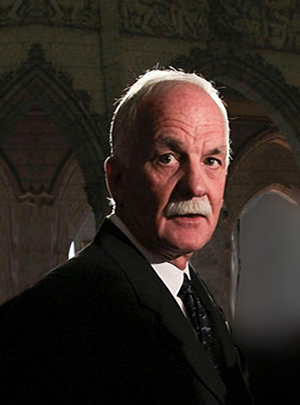
Sometime in the next few weeks, Public Safety Minister Vic Toews is expected to be appointed to the Manitoba Court of Appeal. The Toews appointment is among the worst kept secrets in Ottawa, with the move causing a domino effect that will lead to a new minister and an opportunity for a fresh start on Internet surveillance legislation, one of the government's biggest political blunders to date.
Toews infamously introduced the Internet surveillance bill, often referred to as lawful access, by stating that critics of the bill could either stand with the government or with child pornographers. The comments sparked outrage from across the political spectrum as Canadians questioned the need for the legislation, the lack of privacy safeguards, and the divisive communications strategy.
Within days, the bill was dead in the water, stuck in political limbo with the government unwilling to place it on the House of Commons agenda to allow for a few hours of debate so it could be sent to committee for further study. The bill remained stuck at first reading for months, one of the few government bills to effectively die after introduction.
Redemption time
With an upcoming opening at Public Safety, the government has at least two options. One approach is based on the premise that the controversy over the bill was due primarily to the messenger and not the substance of the bill. If the government determines that Toews was to blame, a new minister may simply tweak the communications strategy and push the bill through the legislative process.
Alternatively, a new minister provides a convenient opportunity for an Internet surveillance restart. The change in ministers would allow the government to walk away from Bill C-30 since new ministers often seek to place their own stamp on department policies and priorities. A fresh approach could include scrapping the bill, launching a public consultation, or asking a House of Commons committee to study the issue before moving ahead with new legislation.
The different lawful access possibilities are reminiscent of the public battle over copyright reform in 2007. After then industry minister Jim Prentice faced a public backlash over planned legislation, the government delayed introducing the copyright bill just hours before it was to have been tabled. The bill sat on the notice paper for six months as an internal debate raged over whether to introduce it largely unchanged (but with a new communications strategy) or to scrap it and go back to the drawing board.
The government opted for the first option, introducing the bill in June 2008. The bill faced the expected criticism and died soon thereafter. With a change in minister -- Tony Clement became Industry minister after a fall election -- the government started over, beginning with a national copyright consultation in 2010.
Drop it
Several years later, the government faces many of the same political and policy dynamics with an unpopular Internet bill and questions about whether it can be saved. While it may be politically tempting to stay the course with a new minister, the better approach would be to start over.
Dropping Bill C-30 would send a strong signal that the government is prepared to re-examine the issue, starting with a full public consultation on how to best balance the need for online security with the public interest of appropriate privacy safeguards. ![]()
Read more: Politics















Tyee Commenting Guidelines
Comments that violate guidelines risk being deleted, and violations may result in a temporary or permanent user ban. Maintain the spirit of good conversation to stay in the discussion.
*Please note The Tyee is not a forum for spreading misinformation about COVID-19, denying its existence or minimizing its risk to public health.
Do:
Do not: